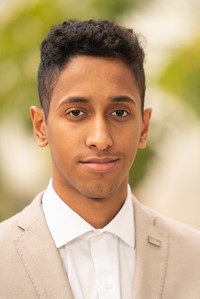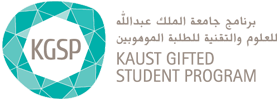Summer Research at KAUST
Throughout their time in the KGSP, students are offered many opportunities to engage with KAUST’s world-renowned faculty and researchers, the most significant of which is the KGSP Junior Year Internship Program. During the summer, KGSP undergraduates are able to work in the state-of-the-art facilities on the KAUST campus and gain meaningful research and pre-professional experience under the close guidance of KAUST professors who are conducting groundbreaking and impactful scientific and technological research projects. KGSP students, immersed in the premier academic learning environment that is developing at KAUST, can contribute to scientific discoveries that will address global challenges and become integral actors in the innovation and development of Saudi Arabia. The KGSP facilitates summer research at KAUST by matching students with a research project that aligns with their interests and academic pursuits. With improving conditions regarding the COVID-19 pandemic, most students were able to travel to the KAUST campus to participate in this dynamic learning opportunity.
This summer, 45 KGSP students are currently engaging in research at KAUST. In addition, this year several KGSP sophomores with outstanding academic profiles and research experience were selected for the program. For his summer research at KAUST, Fahad Alduayji, a rising senior at Emory University majoring in Chemistry, worked with Dr. Frédéric Laquai, Professor of Material Science and Engineering and Associate Director of the KAUST Solar Center, on a project entitled “Organic nonfullerene acceptor based solar cells and their photophysics,” in which he and Dr. Laquai’s lab group sought to understand the energetic losses in solar cell devices and how potentially these energy losses can be avoided to increase the efficiencies of organic solar cells. With his interests in organic synthesis, photovoltaics, and robotics, Fahad greatly appreciated his internship at KAUST and the lessons he learned about organic solar cells and their potential to revolutionize how people consume energy, but also of the challenges that the research field entails. “Getting first-hand experience and being able to work on organic solar cells made me understand these challenges on a much deeper level,” Fahad stated.
For his summer research at KAUST, Fahad Alduayji, a rising senior at Emory University majoring in Chemistry, worked with Dr. Frédéric Laquai, Professor of Material Science and Engineering and Associate Director of the KAUST Solar Center, on a project entitled “Organic nonfullerene acceptor based solar cells and their photophysics,” in which he and Dr. Laquai’s lab group sought to understand the energetic losses in solar cell devices and how potentially these energy losses can be avoided to increase the efficiencies of organic solar cells. With his interests in organic synthesis, photovoltaics, and robotics, Fahad greatly appreciated his internship at KAUST and the lessons he learned about organic solar cells and their potential to revolutionize how people consume energy, but also of the challenges that the research field entails. “Getting first-hand experience and being able to work on organic solar cells made me understand these challenges on a much deeper level,” Fahad stated.
Zainab Al-Hubail, a sophomore majoring in Materials Science and Engineering at University of Illinois at Urbana-Champaign, worked with Dr. Cafer Yavuz, Professor of Chemical Science, on the research project, “Crosslinked Polyethyleneimines (PEI) for reversible CO2 capture.” In this initiative, Zainab researched ways to produce a solid sorbent that can be used to capture CO2 in power plants in a more environmentally friendly and cost-effective approach than using the standard liquid amine solutions that are more costly and energy consuming.
Zainab cites her research experience working with CO2 conversion using electrochemical cells in The Kenis Research Group at UIUC as a major factor that drove her to her current research project at KAUST. She notes that the concepts in her Organic Chemistry classes have been reinforced through her time working with Dr. Yavuz, stating “Slowly but surely, I am learning how to connect solving problems in the lab to my everyday class content.”
Zainab’s experience will undoubtedly bolster her academic profile and open additional avenues for professional and scholarly growth. Emily Hagemeister, Zainab’s KGSP Advisor, stated, “She has dedicated herself to research on the carbon circular economy for the past two terms; she is enthusiastic about utilizing her knowledge to make a positive impact on global climate change."
“Every single research project at KAUST is devoted to the good of tomorrow, from finding solutions on how to feed 10 billion people to tackling every step in the carbon circular economy and more,” Zainab explained. “KAUST has inspired me to do my absolute best in hopes that one day, I will return here with the same commitment to KAUST as KAUST has to the world.”

